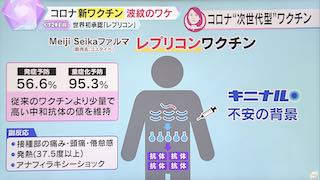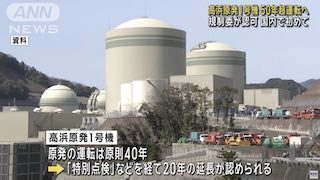TOKYO, Jun 17 (News On Japan) - Located in Shinjuku, Tokyo, the 'Kenno Cafe' aims to prevent dementia through recreational activities like exercises for those concerned about the condition.

An 86-year-old man who commutes from Tokyo says, 'At my age, dementia is a concern. I participated because I thought there might be some tips to avoid it.'
A 67-year-old man commuting from Yokohama adds, 'My mother eventually developed dementia and entered a facility. I didn't recognize the signs and regretted my ignorance later.'
Last month, the Ministry of Health, Labour and Welfare predicted that by 2040, one in three people over 65 will have dementia or MCI (mild cognitive impairment). This is the first time the government has estimated the number of MCI patients.
What affects the onset of dementia?
Dr. Arai, a leading dementia researcher and operator of the cafe, explains that prevention at the MCI stage can significantly delay the onset of dementia.
MCI, or mild cognitive impairment, is an intermediate stage between normal aging and dementia, characterized by declines in memory and attention but not severe enough to disrupt daily life.
Dr. Arai states that without prevention, about half of MCI patients develop dementia within five years. However, appropriate prevention can help some people (about 15-40%) regain normal cognitive function.
Dr. Arai: 'MCI is the hottest topic in current medical research. It's like extinguishing a smoldering fire before it spreads into full-blown dementia.'
Tanaka (a pseudonym), who has been attending the cafe for six months, was diagnosed with MCI last year.
Diagnosed with MCI last year, Tanaka (80) says, 'I can live alone now, but as the symptoms progress, it will become problematic. I feel like I'm on the edge. If it gets worse, I'll be in the dementia group.'
In addition to participating in activities at the cafe, Tanaka is taking lecanemab, a groundbreaking new drug that was just approved for insurance coverage last December. This drug removes the substance causing dementia and slows its progression.
Despite not having symptoms severe enough to disrupt daily life, Tanaka says there is something he can't live without.
Diagnosed with MCI last year, Tanaka (80) says, 'I take notes. Even now, I'm told when something will air, but I forget by the time I get home. I sometimes forget the day of a planned meeting with friends...'
Meanwhile, non-drug prevention methods are becoming more widespread and accessible.
What are the new initiatives at 'Boke-fuji' Kannon?
Kana Komatsuzaki from Me-Tele reports from Tamagawa Daishi in Setagaya, Tokyo, known for its blessings against dementia. The temple attracts many visitors on weekends.
Chief Priest Shinho says, 'There's a speaker beyond here.' 'Can you hear the sutras?' 'Yes, it sounds a bit distorted, like it's echoing.' 'You can feel the vibration, can't you?'
The temple uses the latest speaker technology, "kikippa," to process and output sutra sounds as "special sounds."
Listening to the "processed sound" compared to the "original sound" reveals the difference.
Chief Priest Shinho says, 'You can feel the reverberation, right?'
How does this "processed sound" relate to dementia prevention?
The company that developed the technology explains that listening to these "processed sounds" can generate "gamma waves" in the brain, which are associated with focus and memory. Research shows that gamma waves may reduce amyloid-beta, a protein linked to dementia.
Dr. Arai emphasizes the importance of combining various prevention methods.
Dr. Hiraishi Arai of Alzheimer's Clinic Tokyo says, 'No single method can prevent or cure Alzheimer's, the greatest enemy of humanity. If everyone understands the importance of prevention, it could create a significant social movement.'
Source: ANN















